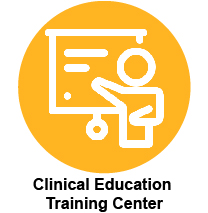Graduate Institute of Medicine
Contac Info
- Tel: +886-7-3121101 ext.2136 #23
- Fax: +886-7-3222461
- E-Mail: bethsia@kmu.edu.tw
- WebSite: http://gim.kmu.edu.tw/index.php/en-GB/
International Admission
The Graduate Institute of Medicine was founded in 1967. Taiwan is located in tropical area, our school set up a research center focusing on tropical medicine. In 1977, this center was reorganized as Graduate Institute of Tropical Medicine to provide the master program on tropical medicine, in addition to research. In 1981, it was reformed as Graduate Institute of Medicine and increased programs of Ph.D. and Doctor of Medical Science, and now as a well-established graduate institute. Our faculties include many well-trained and well-known scientists and physicians special on various kinds of fields. Based on it, our institute can provide many courses integrating basic and clinical medicine, to fulfill President Hsin-Su Yu’s ideal of “Teaching Excellence, Innovative Research, Quality Humanism and Social Caring”. They include anatomy, physiology, pathology, molecular biology, pharmacology, microbiology, immunology and many clinical fields from our affiliated hospitals. Moreover, our institute actively collaborates with many famous universities worldwide, such as Harvard University, University of California in San Francisco, University of South Africa, University of Johns Hopkins, and University of Arkansas. To date, there have been more than 750 students graduated from our institute.
Research Focus
- Environmental medicine
- Cancer research
- Translation medicine
- Regeneration medicine
- Infection and immunity
- Cardiovascular diseases
- Neuroscience
About the Graduate Institute of Medicine
The third superintendent of this school, Dr. Cheng-Chong Yang, created the Tropical Medicine Research Center in December of 1967. Numerous achievements resulted from this effort. In order to develop educational and research talents in the field of tropical medicine, the 4th superintendent, Dr. Sian-Chen Hsieh established the Graduate Institute of Tropical Medicine on August 1st, 1977, based on the original Tropical Medicine Research Center . During 1981, the PhD. program was added, and the name of our institute was changed to the Graduate Institute of Tropical Medicine. In 1996, the medical research building was officially unveiled. Other plants and facilities include research rooms in each department, as well as the hyperfine structure lab, biodynamic lab, fine equipment room, statistical analysis room, molecular biology lab, cell and tissue cultivation room, pharmaceutical toxicity lab, isotope lab, clinical immunology lab, general lab and experimental animal center. These are used to provide a superior learning and research environment, and to construct a research system combining clinical and basic sciences.
The Graduate Institute of Medicine is an integrative medical research institute that focuses on the integration of basic and clinical medicine. The institute provides Master’s and Ph.D. programs with broad research fields and extensive diversities of specific interests which emphasizes on integration of basic and clinical medicine. Master’s students are required to specify and register into one of the 10 subprograms, including translational medicine, biochemistry, molecular and cellular biology, microbiology, immunology, parasitology, pharmacology, clinical pharmacology, cellular physiology, molecular medicine, neuroscience, psychiatry, genome medicine, epidemiology, anatomy, pathology, tropical medicine, respiratory therapy, and medical laboratory and biotechnology. However, in PhD program, students are not required to specify any one of subprograms. The graduate students consist of graduates and clinicians from life sciences-related disciplines. Therefore, the teaching curriculum includes basic science and clinical medicine and utilizes modern biotechnology research methods to provide interdisciplinary learning to cultivate students with practical skills and professional knowledge. Topics related to biological phenomena and clinical medicine are further discussed at the cellular and molecular levels.
Basic medicine includes disciplines such as anatomy and dissection, pathology, physiology, biochemistry, molecular biology, pharmacology, microbiological immunology, parasites, molecular medicine, medical genetics, and experimental diagnostics. Clinical medicine includes internal medicine, surgery, pediatrics, obstetrics and gynecology, osteopathy, urology, neurology, and psychology. The emphasis is on the integration of basic and clinical medicine. Each semester, the Institute will invite national and international scholars on a regular basis to give lectures, cooperative research and other seminars. On the other hand, instructors and students of the institute have frequently participated in national as well as international academic conferences, and will be publishing research results in an internationally well-known scientific journal. Thus, the educational plan of the Graduate Institute of Medicine is to train and prepare high-grade research talents corresponding to the demands of the future development of medical science. As of August 2011, the institute has graduated 755 Masters and 298 PhD. talents
Other than longstanding interactions with national organizations, the Institute of Medicine has also actively engaged in communications and cooperation with academic institutions in the and , in order to create more opportunities for the instructors and students of the Institute to exchange ideas with scholars abroad or to observe and study in international research organizations. This effort is well-received in the interactions with our sister schools such as University of California in San Francisco, Medical Science Research Center of the University of Arkansas in the United States, Harvard University Medical School and School of Public Health, and Medical University of Southern Africa.
In conclusion, the Graduate Institute of Medicine has fulfilled all of its objectives in the past 28 years. It has facilitated the research atmosphere for each instructor of the school, increased the standards of research of the school, improved medical technology in the school, and created many talents and instructors. The goal for the future is not only to become one of the best graduate schools in the nation, but also to become an institute with a high academic status internationally, one which occupies a place in the international academic field.










